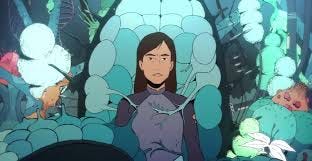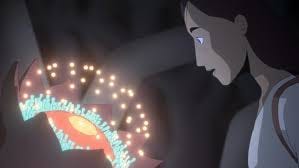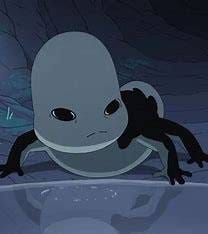CRAFT is a reader-supported email newsletter about the nuts and bolts of fiction writing and the world of publishing.
I wanted to talk about worldbuilding today, for real worldbuilding, worldbuilding worldbuilding. I have written elsewhere about how EVERY book has worldbuilding, from SFF to hyperrealistic literary fiction, in the form of “setting is worldbuilding” (ie, the post I just reposted on setting). So just to give a nod in that direction, if your book takes place in New York City, it should feel like NYC, if it takes place in an isolated Mormon community where people drink dirty sodas, I need to see and experience that world for the book to pop.
But today I want to talk about worldbuilding in the SFF sense. I don’t know how many of my readers write SFF or speculative, but I think you should find it useful regardless. Doing worldbuilding right in SFF takes a lot of mastery, one, because there is a lot of work, much of which is the iceberg beneath the surface, and two, because you want to do it without infodumping. But I would actually say that a book that is lazy in its worldbuilding is worse than a book that attempts to do it and ends up infodumping.
What do I mean?
As I’ve mentioned before many, many times, I love vampires. The first book I wrote (in high school) was a vampire book, and I would love to return to vampires. I’m not sure where my mystery career is headed (I am currently on submission and whether or not it goes somewhere is of course, a ~mystery~.) So I decided to write my next couple of books simultaneously. I could not sell a SFF book on proposal, so I would have to write the whole thing on spec. Anyhow, I took some time to decide that this would be an urban fantasy, as opposed to regular fantasy. (Urban fantasy: it’s our world but there’s supernatural stuff in it, like The X-files or True Blood. In straight fantasy the entire world is made up.) Anyhow, the last time I wrote SF I had created a world whole-cloth. It was a military science fiction that I had written 2.5 books for and 2 novellas along with it (one of these, Guava Summer is published). But this time I’m starting from scratch. When I did the military SF I just sort of did the worldbuilding as I went, but this time I wanted to work a lot of that out before hand, because it would inform the politics undergirding the story. So I thought, where to start?
As you know, I like doing questionnaires when I do character building, so I tried to find the same for worldbuilding. I ended up on a website for Dungeon Masters for D&D and found this massive list of questions to be answered in order to build the world of a campaign. (If this is drawing a blank for you, in short: DMs for D&D often put tons of work into their campaigns and what they do is in many ways similar to what novelists do.) It was very detailed, maybe even TOO detailed, but found myself skimming through and thinking about the questions before I came upon this one: “Who builds the roads?” I thought this was an amazing question.
It reminded me of that famous story about how the band Van Halen had a rider in their contacts for concert venues that there should be a bowl of M&Ms set out for them, but with no brown M&Ms in it. This was not because they were divas, but because if they got to the venue and there were brown M&Ms the venue likely didn’t read or comply with all the more important technical equipment stuff that could actually kill someone. The M&M rider created a canary for the coal mine.
“Who builds the roads?” struck me as a good canary.
Recently I read a couple romantasy books in a row. I thought A Court of Thorns and Roses (the first book) had decent worldbuilding, not like insanely immersive but pretty good. Then I realized that a lot of others writers just whole cloth control C control V’d Sarah J Maas’s worldbuilding. (or even plots. and characters). It’s a particular struggle for romantasy because there are 1) too many bad writers chasing dollar signs (to be fair, agents and publishers too) and 2) it’s very hard to do BOTH the romance AND the worldbuilding that fantasy requires. There are thousands of fantasy novels where the worldbuilding is vague and undefined because either the author doesn’t care much about the world except perhaps powers and what people look like or because they are not particularly original. We know that things are medieval-ish because they don’t have dishwashers, iPhones, or cars. People have bows and arrows, horses, and cloaks. Medicine is old school, like you crush up some herbs and roots, except there seems to always be some sort of tea or tincture that delivers both perfect birth control and abortion which is hilarious because we don’t even have that now in modern society. The politics, culture, and religion are often simplistic. You have a sense of what is true on the surface (the totalitarian government is Bad!) but there are no layers under the surface.
I don’t think these people have thought about who might have built the roads in their worlds. Because very frequently fantasy authors will fall back on a medieval-ish view of the world: probably some sort of government, a king most likely, built the roads, i dont know. That a community is under the aegis of a king is a huge part of our human history, but that’s our history. Now we can write ANY history and it doesn’t have to be bound by what we know. Maybe, local governments be damned, merchant guilds build the road and hold way more power than governments because they control commerce. Maybe the roads are built by small animals that are following some sort of imperative to lay their bodies down and die after they become petrified. Maybe the roads were built by some ancient civilization that is long gone, and no one knows where they went. The thing that makes SFF awesome is that it is without bounds.
The more you ask yourself questions, the more you can come up with answers that are more original than just falling back on what seems familiar. The thing that is amazing when you write SFF is that the world is your oyster—things can be as strange and unusual as you want. This is why, if you think about it, depictions of aliens where they have two arms, two legs and a big head are a bit silly because really that’s just a reflection of us. Go original, go strange. Why can’t aliens exist in a color spectrum we can’t see? Why can’t they be two-dimensional, or exist solely as sound?
A fiction that does this really really well is Scavenger’s Reign which was originally on HBO Max The One To Watch HBOMAX, whatever it is called, but is now also on Netflix. A few stills below, but I read that the guys who made this highly original VERY FUCKING WEIRD show were actually botanists, which makes sense when you see the show because every time a living thing is presented, it is so original and inventive, that you find yourself captivated and terribly excited to see what will happen when that flower opens.
Thinking about my vampire world, one of the questions on the list was, what are the goods and services? Ok, but my book takes place in the real world, with a layer of fantasy over it. So Starbucks still exists, Exxon, the normal economy, etc. What else would exist, if there were vampires as I was imagining it? Well, there would be businesses involved in sunproofing things: homes, cars, office buildings. There would be people who developed the most efficient weapons to kill vampires. Vampires, who want to hide their existence from humans, need safe means of transferring their money over time without drawing attention to the fact that its been 100 years and they haven’t died. They would need dedicated bankers and lawyers. Perhaps even investment platforms.
What is the government and its history? Well, I was thinking of things as being on a spectrum from absolute lawlessness (vampires know no king) to an organized vampire government that collapsed a century ago. Different people want different things: some think it was better under an organized government, and some do not. Because vampires are immortal, I did a rough chart of the different generations of vampires and how long they were alive, and what was happening politically in the world at the time.
Is there religion, how many religions, and what’s driving them? I always thought Game of Thrones had an interesting take on religion. You had the 7—including its fanatics—but then also the ancient religion that predated all that (tied to the Weirwoods), then whatever TF is going on with R’hllor. You can probably find hour-long lore videos on YouTube about each of these religions, that’s how much thought is put into them. And religion in these stories is very consequential.
One of the questions on the questionnaire had to do with time, calendars, and holidays. I expanded this out more broadly to the simple question: “What does time mean if you are immortal?” I think a lot of vampire novels these days are utterly uninterested in this question (which is why you have a lot of 5000 year old men falling in love with high school girls). Even at 45, my perspective on life is radically different than it was when I was 25. What do you think about life, death, religion, history, mortality, when you are 100? how about 500? Or a thousand? The way vampires concept of time is different will be a huge part of the thematic content of the book. What does it mean to not die when all you are raised to think about when you are human (before you becoming a vampire) is how to avoid dying. Game of Thrones does something interesting with time—seasons specifically. We don’t get Winter once a year. Maybe once a lifetime, but when it comes it could last multiple lifetimes. And boy do they make you think Winter is this horrifying thing barreling towards us. It’s not just a time for us to drink hot chocolate. How does society function if you live in a world where winter can last several lifetimes? What percent of your grain do you have to preserve for that winter when you will not be able to grow crops for years and years? How do you preserve it? Can you farm indoors? Or does the fact that summer lasts multiple lifetimes mean that people are stupid and forget that winter is coming, much like we as humans have lacked the foresight to understand a future under global warming?
If you have a magic system, at least take some time to think about how that system’s rules works. (Brandon Sanderson has a lot of content about this on YouTube- say what you will about him as a writer, but even people who say he is a bad writer say he is very good with magic systems). The problems I most commonly see in SFF is 1) overpowerered characters 2) convenient magic. I know its fun to blow bandits out of the water when you are like level 100 and it takes you one arrow—that’s fun in videogames but not fun in novels. Magic should not be plot armor. My best example for problems with convenient magic is Harry Potter. So there’s an “accio” spell that brings things to you, but not certain things. There’s a thing that does time travel, but only for one book.. There’s a death spell, which we know works, but for some reason Voldemort, who wants to kill Harry Potter, keeps not using it on him. (the problem is that she made a powerful spell that works and V has no reason to not use it on HP, so she needs to make up contrived reasons for V to not do so, such as he’s always making a grandiloquent speech about killing HP instead of killing him. It might have served her better to put more limitations on the spell.)
Certain types of fantasy lend themselves well to you needing to do specific types of “research” (I put that in quotes because the research is made up.) I’m writing about vampires so I’m going to have to think a lot about the mechanics of that—what can kill them, how much do they need to eat, how do they procreate. If you’re writing about witches, you need to spend a lot of time thinking about how and why their witchcraft works.
But also, looking through questionnaires like this is useful because some of the questions will absolutely feel like they are coming out of left field and may yield something interesting. One such question was, “what things are considered serious crimes?” Here, we are living in a world after a vampiric government collapsed. It used to be illegal to kill another vampire. But now some people feel like it is—though there’s nothing to enforce this in many areas—and others find that idea laughable. There used to be a treaty where these two different clans would not invade upon each other’s territory, but now there isn’t. Because of the folklore about having to invite a vampire inside your house. I decided there would be really strong cultural norms about hospitality within vampire communities. To not offer hospitality would be a personal affront, and to abuse hospitality would be punishable by death. This allows for interesting situations where dangerous people might be let inside the gate, but to be let inside the gate with dubious intentions is deadly.
In short, consider things you might not think of as important to fill your world out as original and to give it the sort of nooks and crannies that will set it apart.
How is garbage handled?
What is fashion?
What is pop culture in this world?
What is taboo in this world that is not taboo in ours?
What is the cost of magic?
What is family?
How fast can people travel and communicate and what are the boundaries put on this?
What are the societal divides that have nothing to do with money?
What is eschatology in your world?
What do people eat? What is taboo to NOT eat?
How are ideas spread in this world?
Are there religions and how do they relate to each other? How do people practice or think of the religions? Are the religions correct?
What roles to science, technology, and magic play in culture or in law?
You get the idea.






It’s appropriate that I’m reading this just as I’m finishing the plot draft of my WIP and gearing up for my worldbuilding draft. Worksheets make me want to nap so I’m using a “build the world as I plot but also make a spreadsheet with 50 tabs” process, but your piece is making me think I should definitely look at some questionnaires.
Good luck on submission! And I’d love to read a vampire novel from you.
Love this post! Thank you for the insightful and useful prompts. I’m writing contemporary romance but at the end of book 1 in a series of stand-alone novels, I realised I inadvertently created a dystopian world through some events. I’m now reviewing everything and deciding if I want to move the setting to a dystopia or keep the contemporary elements and edit the plot instead.